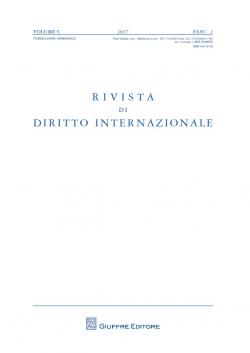La legge italiana sulle missioni internazionali

The Italian Parliament has recently enacted a law giving a full regulation of international missions, concerning Italy’s participation in military operations under the aegis of the United Nations and other international organizations or as member of a coalition of the willing (Law 21 July 2016 No 145). This happened after several attempts aimed at adopting a comprehensive law regulating the dispatch of troops abroad in situations not amounting to war, the only armed conflict envisaged by the Italian Constitution. According to the new law, sending troops abroad, including civilian personnel, needs parliamentary approval, with the consequence that an international mission cannot be set in motion if the authorization is denied. The members of the mission are subject to the peacetime military criminal code, unless the government requests the Parliament to authorise the application of the wartime military criminal code for a specific mission. A wide provision is dedicated to certain criminal aspects, including the fight against piracy. Expenses of missions are taken into consideration, with the creation of a standing fund, together with other financial aspects, for instance the remuneration of soldiers. Law No. 145 deserves a positive view, even though a number of points should be clarified and notwithstanding some critical remarks. Only its implementation may help to resolve the doubts concerning interpretation that are emerging after a careful analysis.
-
Dati bibliografici
in Rivista di diritto internazionale, a. C, n. 2-2017, p. 474-495 -
ISBN/ISSN/DOI:
0035-6158
1. Premessa
2. Oggetto della legge
3. Condizioni cui è subordinato l’invio
4. Le questioni di genere
5. Il procedimento per l’invio
6. Il finanziamento
7. Norme sul personale (brevi cenni)
8. La disciplina penale: i destinatari
9. Segue: fattispecie penali particolari
10. Il problema della permanenza in vigore dell’art. 9 del codice penale militare di guerra
11. Conclusioni



